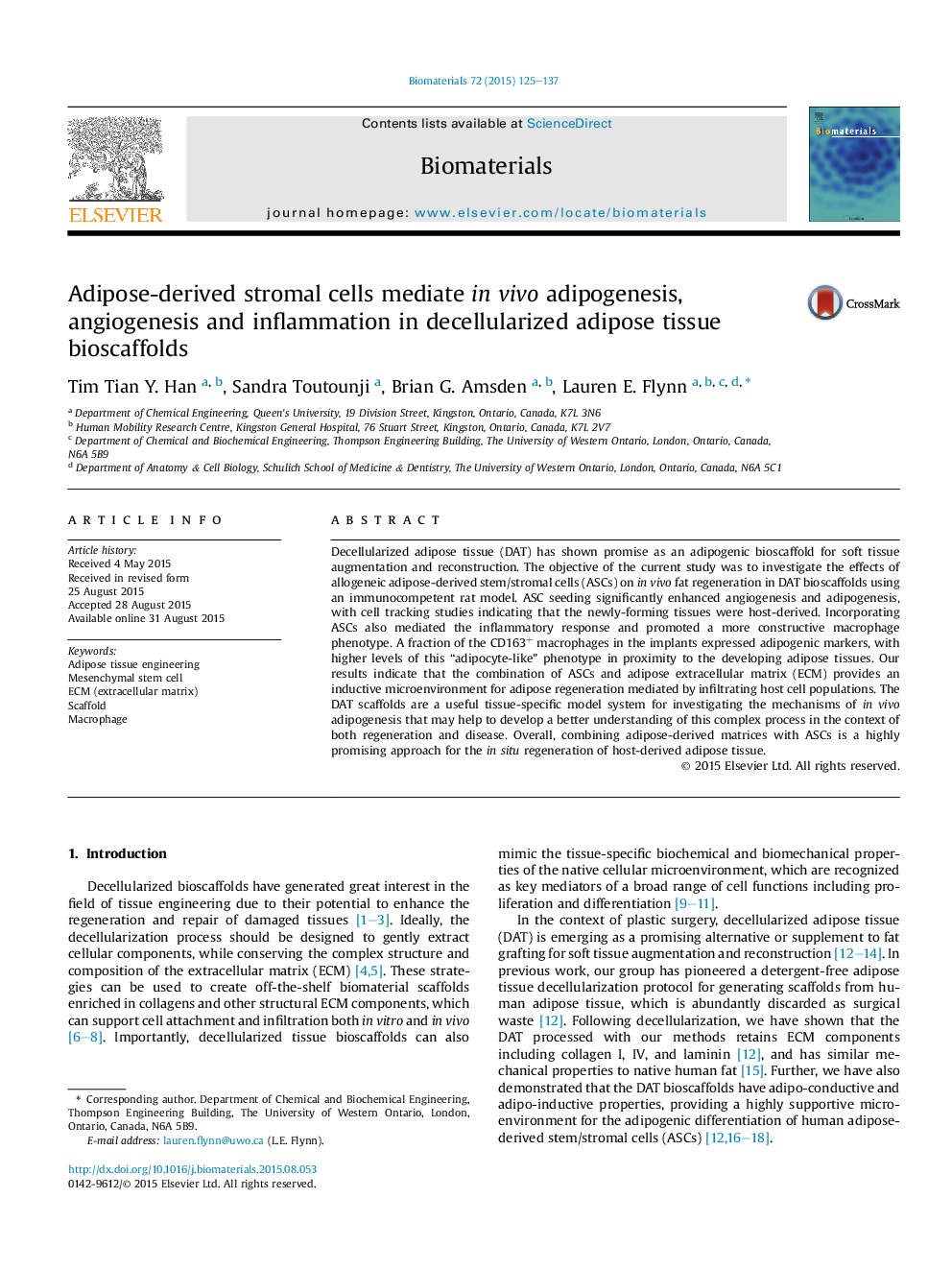| Article ID | Journal | Published Year | Pages | File Type |
|---|---|---|---|---|
| 6485397 | Biomaterials | 2015 | 13 Pages |
Abstract
Decellularized adipose tissue (DAT) has shown promise as an adipogenic bioscaffold for soft tissue augmentation and reconstruction. The objective of the current study was to investigate the effects of allogeneic adipose-derived stem/stromal cells (ASCs) on in vivo fat regeneration in DAT bioscaffolds using an immunocompetent rat model. ASC seeding significantly enhanced angiogenesis and adipogenesis, with cell tracking studies indicating that the newly-forming tissues were host-derived. Incorporating ASCs also mediated the inflammatory response and promoted a more constructive macrophage phenotype. A fraction of the CD163+ macrophages in the implants expressed adipogenic markers, with higher levels of this “adipocyte-like” phenotype in proximity to the developing adipose tissues. Our results indicate that the combination of ASCs and adipose extracellular matrix (ECM) provides an inductive microenvironment for adipose regeneration mediated by infiltrating host cell populations. The DAT scaffolds are a useful tissue-specific model system for investigating the mechanisms of in vivo adipogenesis that may help to develop a better understanding of this complex process in the context of both regeneration and disease. Overall, combining adipose-derived matrices with ASCs is a highly promising approach for the in situ regeneration of host-derived adipose tissue.
Keywords
Related Topics
Physical Sciences and Engineering
Chemical Engineering
Bioengineering
Authors
Tim Tian Y. Han, Sandra Toutounji, Brian G. Amsden, Lauren E. Flynn,
